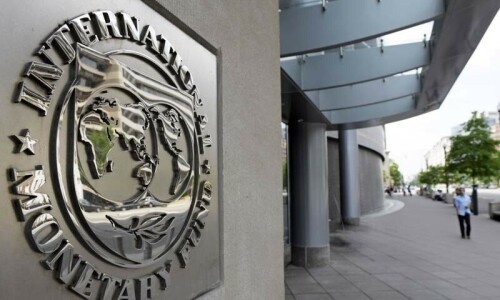
Faiz Ahmed Faiz asked the same questions and his 103rd birthday, celebrated on February 13, 2014 seems an apt time to consider it again. Faiz’s own wrestling with the question has been poignantly captured in a volume on his life published by Ali Madeeh Hashmi and Shoaib Hashmi through the Faiz Foundation. Entitled “The way it was once” the volume presents Faiz’s own tribulation filled life and political struggles in a way particularly pertinent to the clamor of our Taliban laden times. Indeed, Faiz asked similar questions of his own poetic mentor, Mirza Asadullah Khan Ghalib. As is recounted in Hashmi’s biography, he found some direction in Ghalib’s verse;
(if) the River Tigris is not visible in a drop and the whole in a small part; it is but child’s play not a seeing eye.
Borne of this direction, Faiz’s path as a poet thus, was woven inextricably with his politics, he saw the poet as seer, his task to present in verse all the inequalities and injustices, festering in sight. Faiz put his manifesto in the introduction to his collection of poems, “Dast-e-Saba” it is incumbent upon the artist to not only observe but also to struggle. To observe the restless drops of life in his surroundings, it is dependent upon his vision to show them to others.
The drops of life that can be culled from the Pakistan of today are bloody ones. In Karachi and Peshawar where the incipient arrival of the Taliban hangs its shadows over all, we can recount their last coming in Kabul. “Kabul has fallen” wrote one newspaper correspondent in the last days of September 1996. Here in Pakistan, where we await the fall, living poets can tell themselves that the Afghan city was more devastated its historical relics and that its palaces and mosques had all already been destroyed. The poets of today can consider whether this is a sign of hope or of more destruction to come. In places where history still stands and portends to a different future, Faiz foresaw then of the new order that we fear today. In “The soil of my land” he wrote; “Blessings be upon the soil of my land, where they have decreed the custom that men should walk no more with heads held high.” So perhaps it will be once the destruction is done in the cities of Pakistan, when it is time to hang heads low and welcome the victors and the darkness they will bring with them.
In Faiz’s words for the poets of then and now, are the also calculations that are of the greatest concern for the times to come. If the task of the poet is that of presenting reflections of injustice, then an elimination of poets and poetry can present just what the Pakistan of the present moments seems to wish for. If injustice and inequality and want and need, all the things that Faiz saw and made visible are to be denied, ignored and sidelined, then the poet too must go and soon.
The poetless Pakistan that would remain, would be unencumbered by its own reflection, would be a world without a mirror free of the awareness of its ugliness. That dismal dawn too, was presaged by Faiz Ahmed Faiz and when it arrives in the poetless future, pristine and pure we can welcome it with his words from “Subhe Azadi” and murmur to ourselves, “This leprous brightness, this dawn which reeks of night; This is not the one — this long awaited morn” as heads fall and we lose ourselves in the darkness of a poetless Pakistan.








































